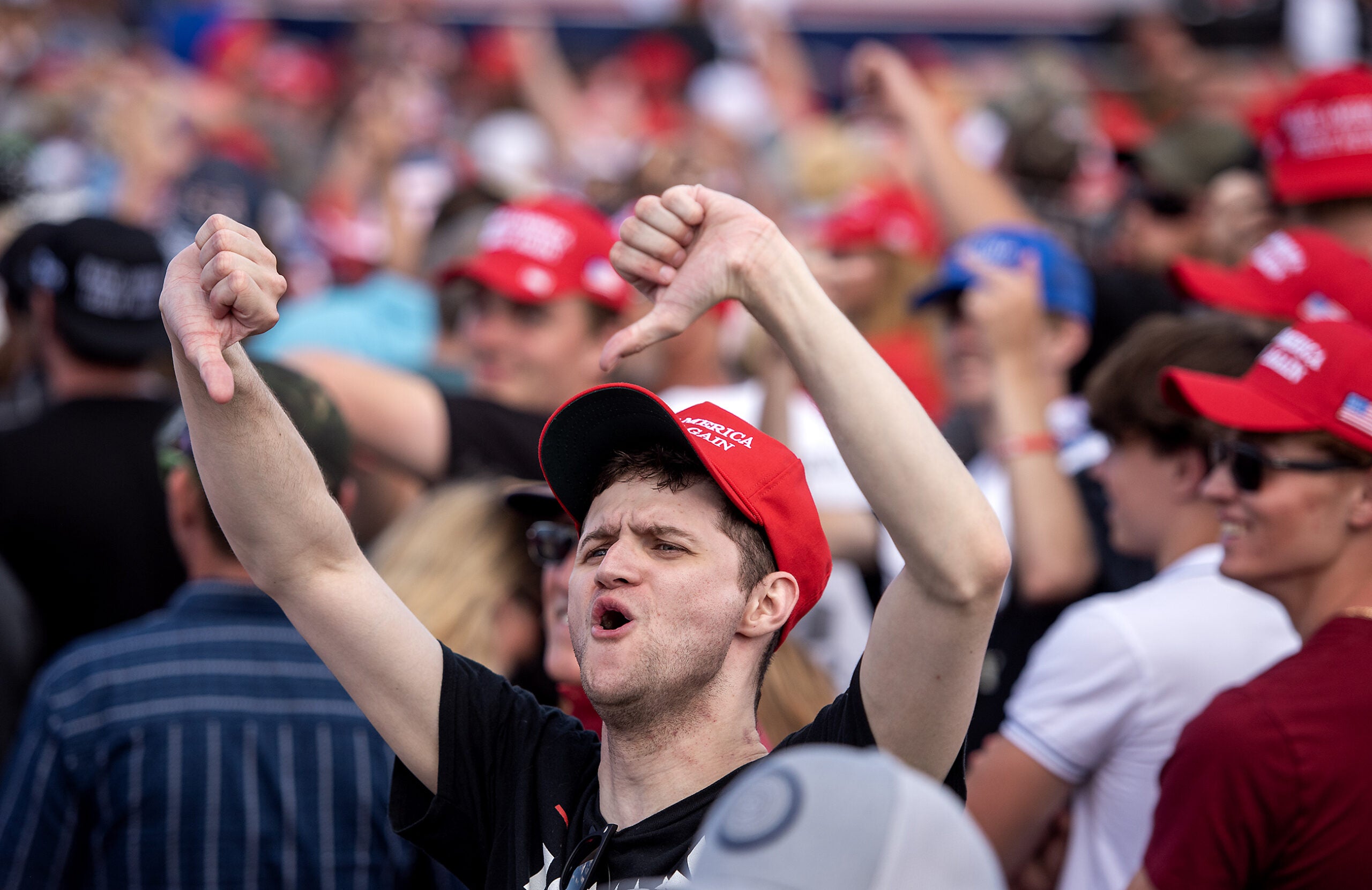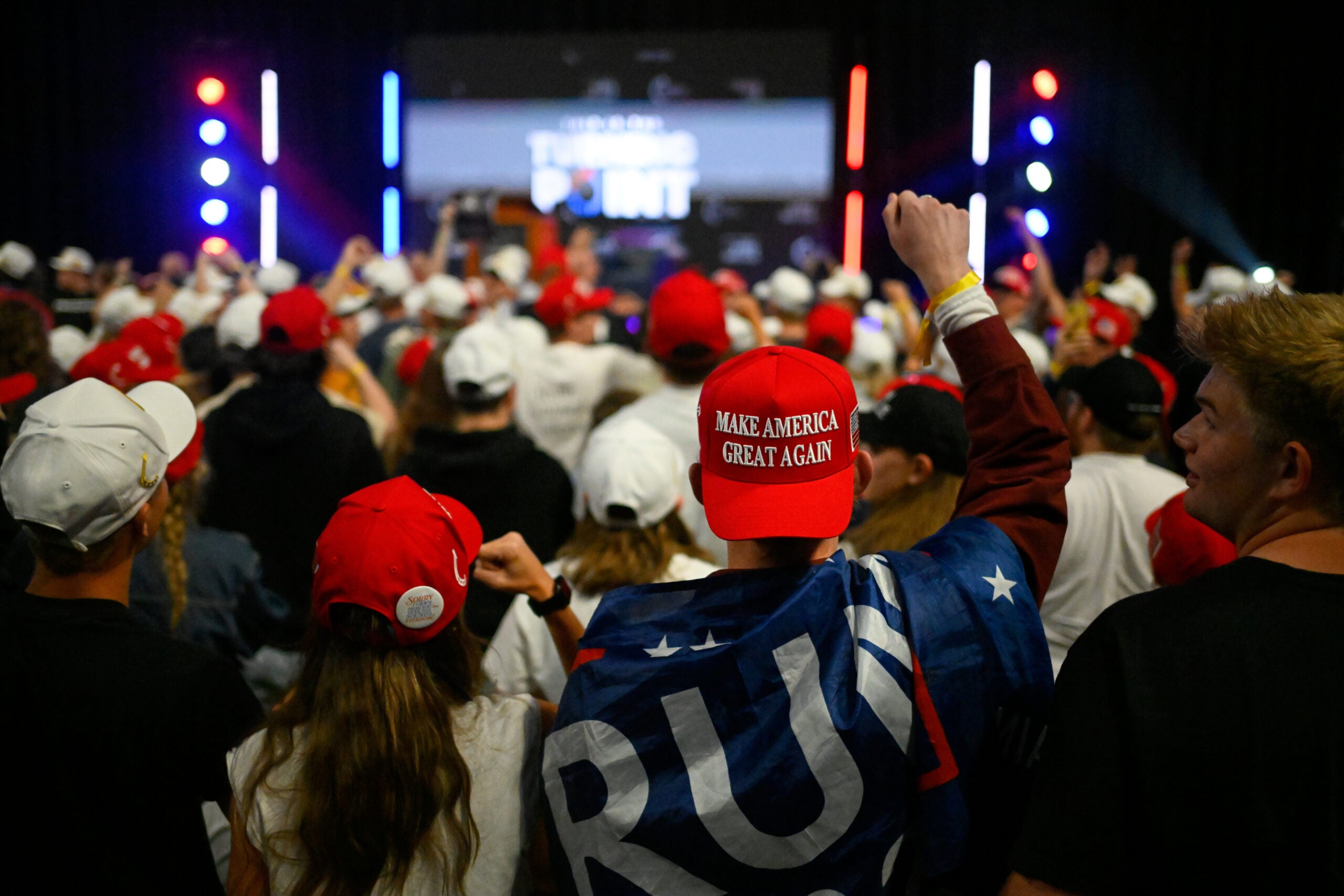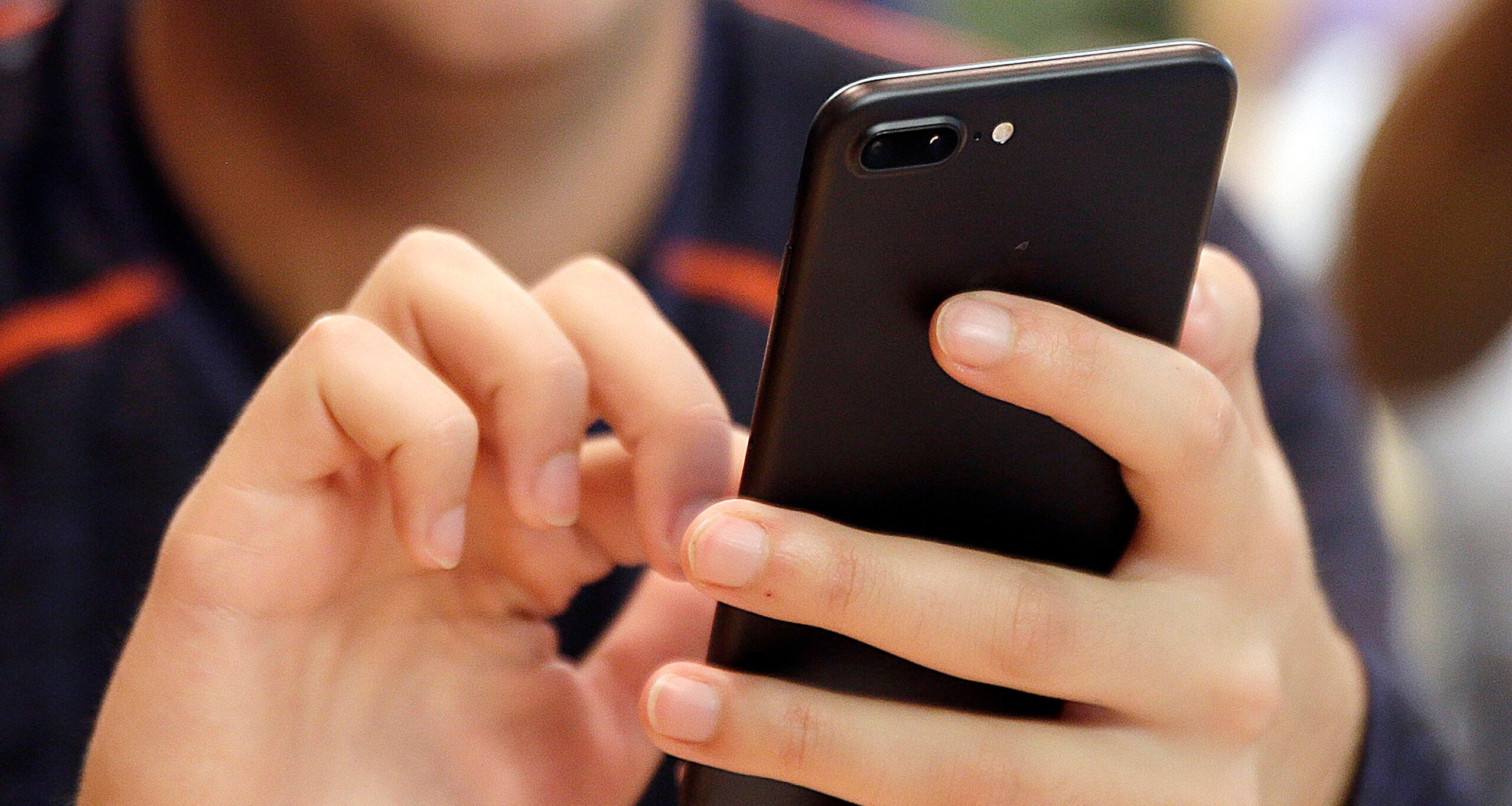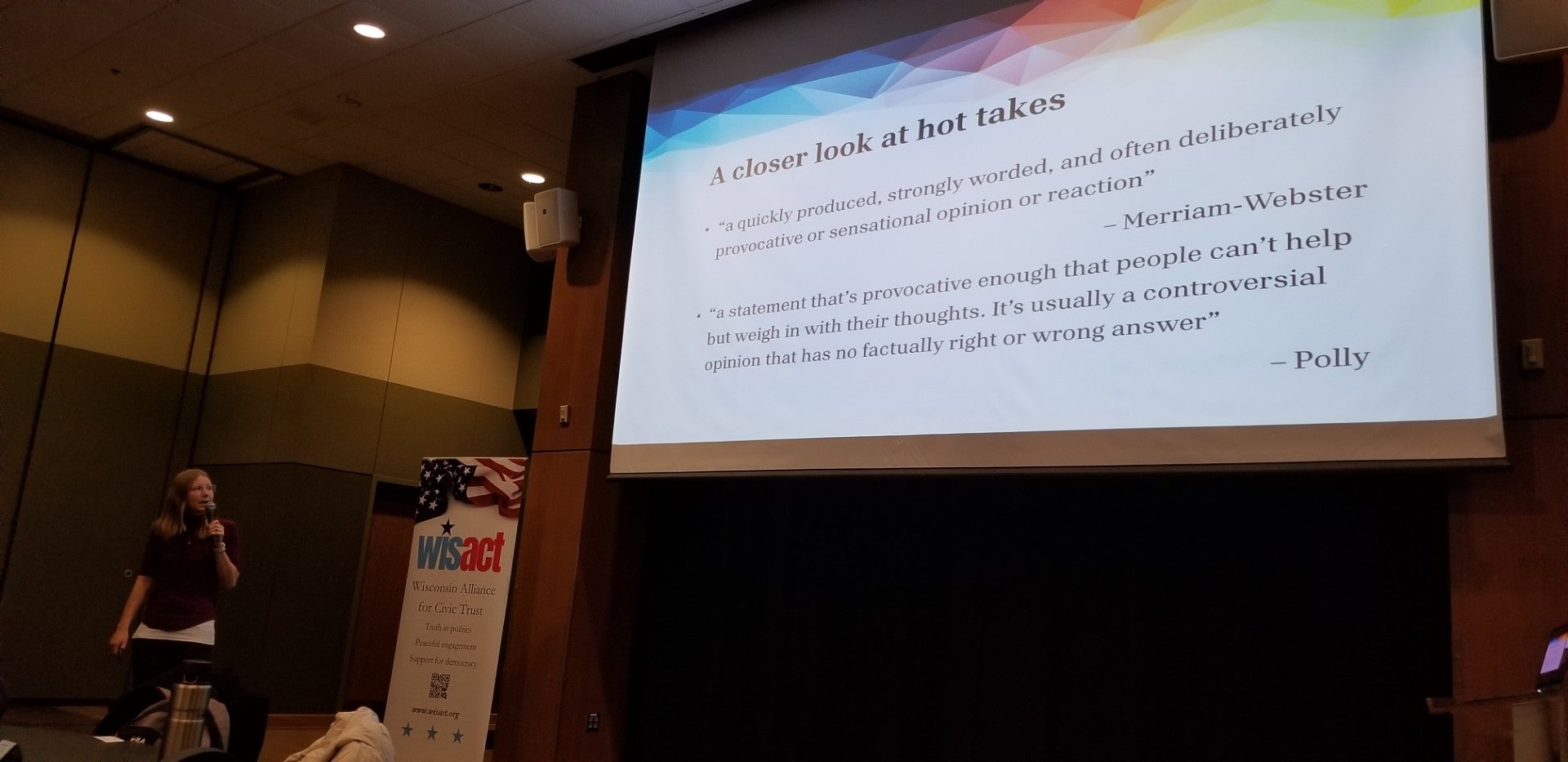Anne Bartels has plenty of experience with kids in her job as an educator for Marinette County. And when she tunes into current political news, Bartels said she constantly sees childish behavior.
“I’m sure some of the children I work with could run things better than some of the people that are currently (in office),” she said. “Kids at least learn that you have to get along and how to be nice to other people.”
Politics has always been divisive, usually listed with religion and money as impolite topics for discussion. But growing polarization has fueled a new style of political rhetoric in recent election cycles that uses more heated and attacking language. That’s left many voters like Bartels frustrated by the constant clash among lawmakers.
News with a little more humanity
WPR’s “Wisconsin Today” newsletter keeps you connected to the state you love without feeling overwhelmed. No paywall. No agenda. No corporate filter.
As part of WPR’s America Amplified project, we’re asking people what elected officials could do to improve their communities. More than a dozen voters contacted WPR to voice their frustration over the divisiveness and lack of cooperation in politics.
Bartels, an independent who leans Democratic, said she wants to see more cooperation instead of what she sees as a self-interested, adversarial approach to passing policy. She said politicians’ focus on “winning” their party’s priorities impedes progress on issues like the economy or access to health care.
With less than two months until the November election, the prospects for a change in political tone are unlikely. Political professionals said candidates use charged language and political attacks for one reason: They are often effective. But surveys showed many voters said they hate what politics has become. And some sources interviewed for this story said it has created divisions in their own communities, workplaces and even families.
For Bartels, the level of division goes against what she sees as a core American value.
“We can disagree, but be courteous about it, not devolve into silly name calling or personal insults, or telling your supporters to be violent,” she said. “That sort of thing just isn’t what America is about.”
Most voters oppose aggressive language, but opinions are changing
For some Wisconsinites, the growing acceptance of personal attacks in politics has affected their relationships with family and friends.
Leonard Schroeder, a retired high school ag teacher from Cadott, said he recently commented on a former colleague’s Facebook post to disagree with criticism of former first lady Michelle Obama’s speech at the Democratic National Convention. Schroeder doesn’t identify with a political party and said he dislikes the two-party system.
“It was posted by a person who I once considered a friend; in fact, I used to spend lots of time talking to him,” Schroeder said. “Basically, he accused me of being brainwashed and stupid.”
Schroeder said his friend is an avid supporter of Republican former President Donald Trump, and he blames Trump for creating a culture where his supporters will “fly off the handle” at any disagreement. Schroeder feels like many of his neighbors are the same way.
He’s not alone. One source interviewed for this story declined to be identified because he was afraid of the social repercussions in his rural community from criticizing Trump.
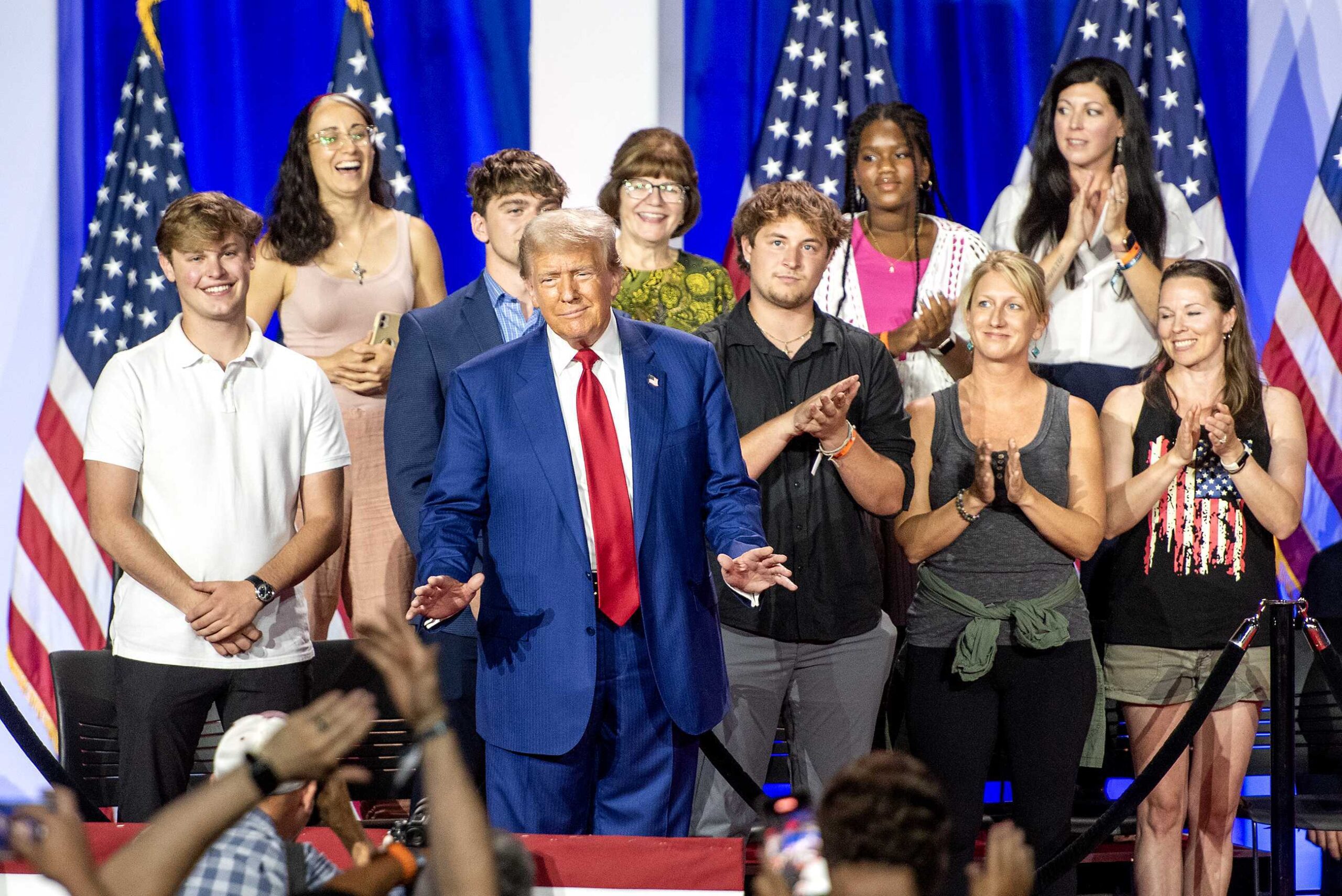
A report by Pew Research Center in January found that 7 in 10 Americans say elected officials should avoid heated or aggressive language because it could encourage some people to take violent action. The survey was done six months before the assassination attempt on Trump at a rally in Pennsylvania.
But the Pew report found there was a growing partisan divide in opinions on this kind of rhetoric. While 83 percent of Democrats said they are opposed to aggressive language, 56 percent of Republicans responded that way. Pew noted that’s six percentage points less than the same survey in 2019.
Lee Rasch, founder of nonpartisan civic group LeaderEthics in La Crosse, said national research has shown a decline in Americans’ trust not only in elected officials and institutions, but also in their fellow citizens. It’s what prompted him to launch LeaderEthics in 2018 in order to call on elected officials to embrace transparency and bipartisanship.
Rasch said more personal attacks are now being woven into political ads, speeches and other types of campaign messaging.
“That wouldn’t have been acceptable maybe a dozen years ago,” Rasch said. “The concern is that we can become accustomed to incivility as being not only acceptable, but it could be viewed as the way to get elected or reelected.”
Civic groups working toward change for future elections
Political name-calling and charged language isn’t new, but Rasch and other advocates said the misinformation and violence that came in the wake of the 2020 election showed that the stakes are serious. After falsely claiming to have won states including Wisconsin, Trump led an effort to overturn the election that included accusing opponents of treason. On Jan. 6, 2021, a mob of Trump’s supporters stormed the U.S. Capitol in an insurrection attempt.
In the 2024 election, Trump has repeated claims that the 2020 election was stolen, along with other forms of mudslinging. And Democrats have also participated in more personal jabs, with Minnesota Governor Tim Walz calling Trump and Republican vice presidential nominee J.D. Vance “creepy” and “weird” after becoming Vice President Kamala Harris’ running mate.
“Maybe this fall’s election could be the low point that will allow us to spring back with greater expectations for civility and bipartisanship,” Rasch said.
He hopes to see more elected officials embrace policy changes like ranked choice voting, which he said could help more lawmakers embrace bipartisanship and ultimately lower the temperature in politics.
Rasch’s LeaderEthics is one of a growing number of state and national civic groups hoping to steer political rhetoric down a different path.
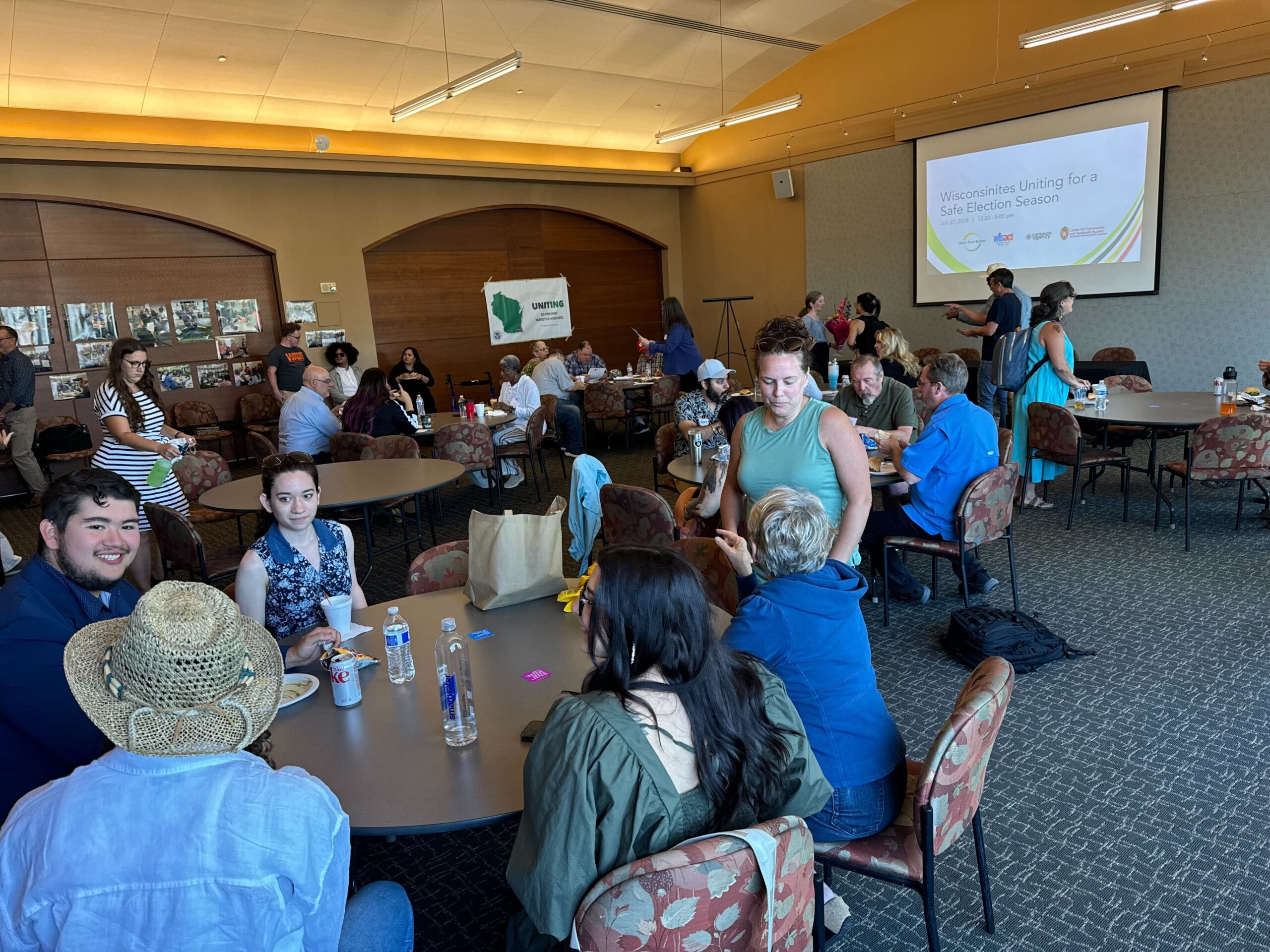
At a workshop in Kenosha at the end of July, national nonprofit Urban Rural Action taught participants how to navigate political disagreements and recognize when someone is moving toward violence. The nonpartisan group launched a Wisconsin program last fall that has been focused on preventing targeted violence by bridging racial, political and other divides.
Parry Singh from Muskego, one of the group’s members, said at the July event that they hope to inspire Wisconsinites to push back on violent rhetoric in their own lives.
“You don’t have to join any organization to do this type of work,” he said. “It starts from the home. It starts from your own local community. It starts from your own street.”
WPR’s Evan Casey contributed reporting to this story.
This story is part of WPR’s work to connect with and better serve Wisconsin’s voters this election season. We want to know what information you need about how to vote. What do you wish candidates were talking about? Tell us what issue matters most to you and your community here.
More reporting from WPR’s America Amplified initiative is available here.
Wisconsin Public Radio, © Copyright 2025, Board of Regents of the University of Wisconsin System and Wisconsin Educational Communications Board.

